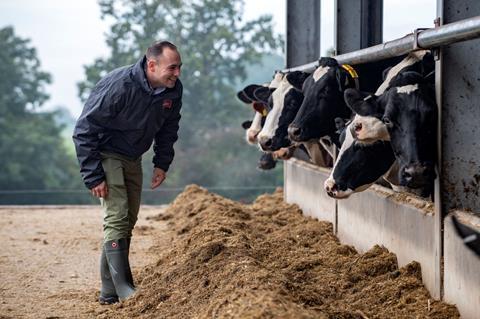
Müller has signalled a major change in the way it will pay for its milk, after announcing a revised contract structure which will place less of an emphasis on global commodity volatility.
The dairy giant said the new structure for its 1,300 Müller Direct and supermarket-aligned dairy farmers would “boost stability, competitiveness and transparency”. It is due to be introduced in the spring, following a consultation process with the farmers.
The supplier estimates about 94% of the milk it sources in 2023 will be used to meet its retail customers’ requirements for manufactured dairy products like fresh milk, yoghurt and butter.
As a result, Müller’s new contract will base the payment for this percentage of volume on an as-yet-undisclosed but independent methodology, linked to elements such production costs – which are currently at record highs – or the costs of meeting high welfare standards and carbon reduction.
Müller’s standard farmgate price (like most of the milk market) has previously been predominantly linked to global commodity price fluctuations, though milk supplied to the likes of Tesco, Sainsbury’s, M&S and Waitrose via aligned pools of farmers do also have a cost of production element or premium.
Under its proposed new structure, only the remaining 6% of its milk – mostly the higher volumes produced by farmers during the spring flush that isn’t required for processing and is instead destined for the ingredients market – would be influenced by volatile global market returns.
Müller’s head of agriculture Richard Collins said the move “reflects the value in the fresh milk and dairy products destined for our retail customers, and this will be the bedrock of the milk price we offer”.
“Independently produced modelling using available forecasts suggests the revised Müller contract will provide higher annualised returns for our Müller Direct farmers and less volatility than our current contract offering, while ensuring we can continue to meet our customers’ desire to maintain supply groups to meet their specific needs,” he added.
Eggs shortages: can dairy-style contracts mend the broken system?
“We also know issues such as sustainability and herd welfare are of utmost importance to our customers and consumers, and the high standards we expect from our supplying farmers will be maintained as part of this new revised contract.”
The Defra UK average farmgate price has been climbing to record levels for the past year – reflecting tight supply and soaring production costs. It hit 50.44p per litre in October, but market forecasts suggested prices could fall to as low as 30p by the second half of next year, said John Allen, managing partner of Kite Consulting.
With the average cost of production now in the region of 45ppl, such a drop could have a “horrendous” impact on milk volumes, he added, and could collapse the market, with no action.
Müller’s move, therefore – while ultimately costing its customers more – would offer retailers “long-term security of supply, while also ensuring they met environmental obligations in their supply chain”, Allen said.
“They have been criticised a lot in the past, but these contracts show leadership,” he added.
“Global dairy commodity market volatility is here to stay, and we believe it is time to adapt,” added Müller’s Collins, who noted the supplier’s offer was only possible due to the fact it had stabilised its once heavily loss-making liquid milk business.
“We are confident that greater levels of certainty, stability and transparency embedded within our revised contract will generate renewed confidence and investment throughout the supply chain.”







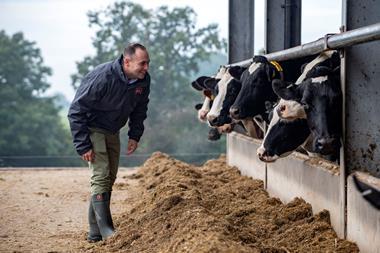

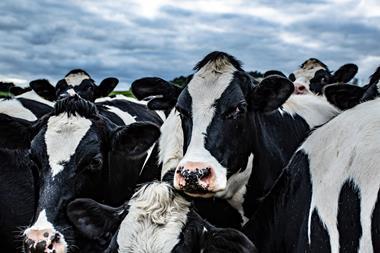
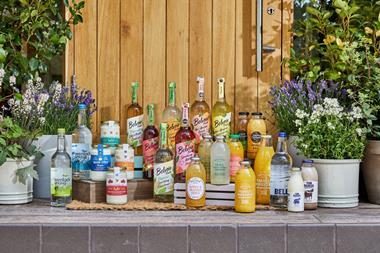

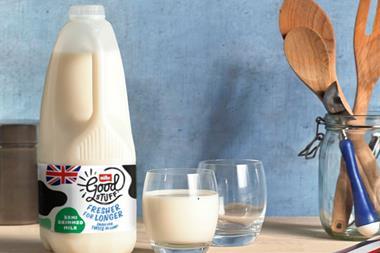




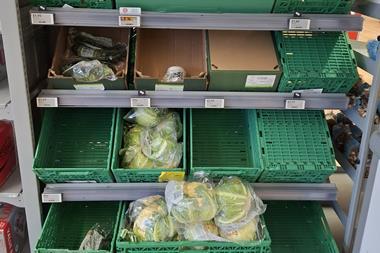
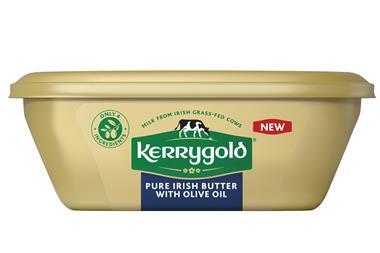
No comments yet